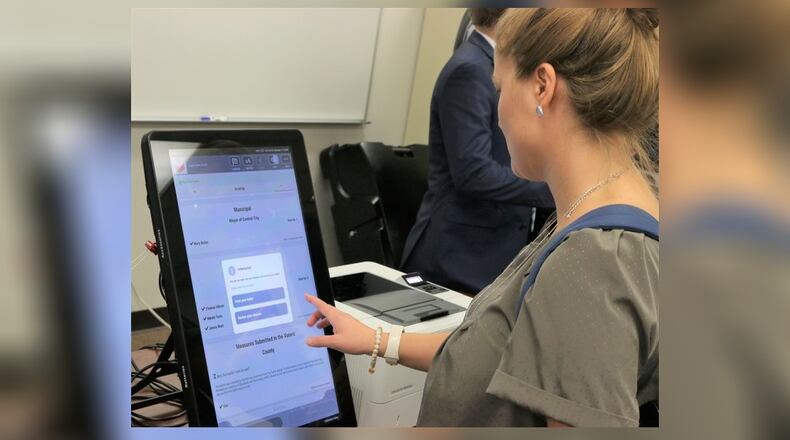Voters who want paper ballots filled out by hand asked a federal judge late Friday to prevent Georgia from using the $107 million voting system the state just bought.
The request comes a day after the judge ruled that voters must use some type of paper ballots next year, but her decision didn't address the legality of the state's new voting system.
Election officials plan to replace Georgia's 17-year-old electronic voting machines with a system that combines touchscreens with paper ballots. Voters will pick their candidates on a 21.5-inch tablet that’s connected to a ballot printer starting with the March 24 presidential primary.
The lawsuit, filed by voters and election integrity advocates, alleges the new voting machines will remain vulnerable to hacking, malware, bugs and misconfiguration.
But state election officials have said that paper ballots will ensure the accuracy of results during recounts and audits.
In addition, the lawsuit said the printed ballots aren’t truly verifiable. Although voters will be able to review ballots before casting them, the ballots embed voters’ choices in bar codes that are only readable by scanning machines.
“No elector can visually review and confirm whether the bar code accurately conveys their intended selections,” according to the amended complaint.
Ballots will also include the text of each vote, which election officials can use to correct potential discrepancies.
Secretary of State Brad Raffensperger has said Georgia's elections are secure, and the addition of a printed-out paper ballot will give voters confidence.
U.S. District Judge Amy Totenberg on Thursday ruled that Georgia election officials must sunset the state’s old voting machines after municipal and special elections scheduled for this November.
That was the state's plan anyway, but Totenberg's order said election officials can't use the outdated voting equipment as a backup if the new system isn't ready by March's elections. She said the state must create a contingency plan that relies on hand-marked paper ballots.
Totenberg denied a motion from the plaintiffs to immediately require paper ballots bubbled in by pen during this year’s elections, saying it would be too disruptive.
About the Author
Keep Reading
The Latest
Featured


